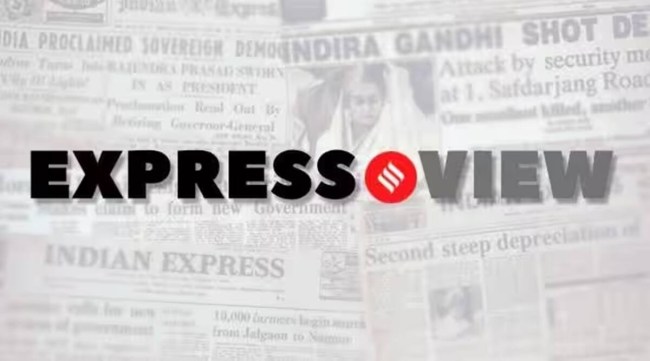Opinion Government’s demand from WhatsApp: Finetune the balance
Express View: Considering that state action can often be arbitrary and that arbitrariness needs to be guarded against, irrespective of the ideological leanings of the ruling dispensation, a careful balance must be struck, leaning towards protecting the rights and freedoms of citizens, with the courts stepping in to reinforce the guardrails.
 Under Section 4(2) of the IT Rules, social media intermediaries that provide messaging services are required to identify the first originator of a message on their platform.
Under Section 4(2) of the IT Rules, social media intermediaries that provide messaging services are required to identify the first originator of a message on their platform. A new front is opening up in the battle between Big Tech and the state. According to a report in this paper, the central government is looking to send an order to Meta’s WhatsApp under Section 4(2) of the Information Technology Rules, 2021, to divulge the identities of those who first shared certain videos on the social messaging platform. The videos under the scanner are deepfakes of politicians, not limited to those belonging to the ruling dispensation, but from political parties across the spectrum. While this is the first time that the central government will be directly sending an order to WhatsApp under this rule, it is not the first instance of WhatsApp being asked to provide such details. A few weeks ago, the Tripura High Court had, in fact, stayed an order by a trial court which had asked WhatsApp to reveal the originator of a chat that contained a fake resignation of Chief Minister Manik Saha.
Under Section 4(2) of the IT Rules, social media intermediaries that provide messaging services are required to identify the first originator of a message on their platform. However, this can be done only for the “purposes of prevention, detection, investigation, prosecution or punishment of an offence” that involves issues of sovereignty and integrity of India, security of the state, friendly relations with foreign states, and public order, among others. These caveats that have been drawn up can serve as checks on state action. For instance, in the case involving the Tripura Chief Minister, the High Court had held that “the extent of the threat to public order” was not specifically addressed by the trial court.
In times when misinformation campaigns are rampant, deepfakes can indeed be used to serve political ends. They can also be used to disturb peace between communities. This does pose a genuine problem and an argument can be made for lifting the veil of encryption in exceptional circumstances. However, it must be kept in mind that this is also a slippery slope. Ordering WhatsApp to divulge the identity of the first originator would involve breaking the platform’s end-to-end encryption, which undermines the privacy of users. There is a legitimate concern that this provision could be weaponised by the government to silence its critics. Considering that state arbitrariness needs to be guarded against, a careful balance must be struck, leaning towards protecting the rights and freedoms of citizens, with the courts stepping in to reinforce the guardrails. A less careful and more heavy-handed approach could also have implications for the larger innovation system that the government is keen to promote.





